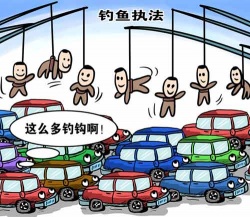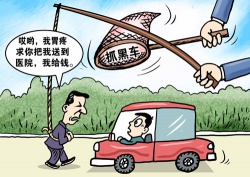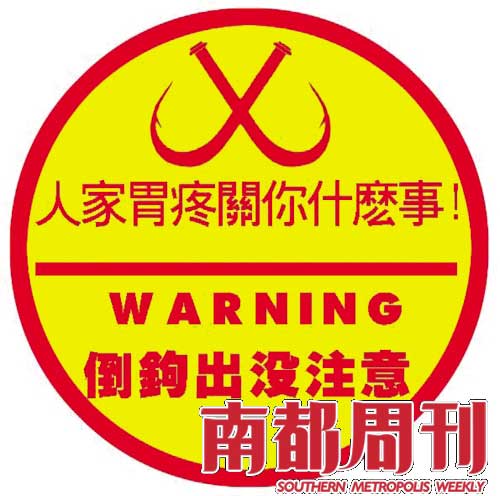“Entrapment”的版本间的差异
来自China Digital Space
| 第11行: | 第11行: | ||
| − | [[File:entrapment2.jpg| | + | [[File:entrapment2.jpg|250px|thumb|rght|''The net is labeled, “Catch black taxis.” The man being used as bait is saying, "Ow, my stomach hurts. Can you bring me to the hospital? I'll give you money”'']] |
| − | |||
| − | |||
[[File:entrapment4.jpg|500px|thumb|center]] | [[File:entrapment4.jpg|500px|thumb|center]] | ||
[[Category: Grass-Mud Horse Lexicon]] | [[Category: Grass-Mud Horse Lexicon]] | ||
2013年9月12日 (四) 23:59的版本
钓鱼执法 (diào yú zhí fǎ): entrapment (literally: fish, then enforce the law)
Entrapment is when a law enforcement agent induces a person to commit an offense which the person would otherwise have been unlikely to commit.
Perhaps the best known case of entrapment in China is that of Sun Zhongjie in October of 2009. A new driver for a Shanghai construction company, Sun was stopped by a man on the side of the road, shivering in the weather. The man asked for a ride, and Sun complied. Though he did not request it, the man handed Sun money when he reached his destination. Next, the man revealed his identity as an under-cover police officer and detained Sun for driving an unlicensed taxi. Sun's conviction was overturned after an outpouring of Internet pressure.
The Sun Zhongjie case is parodied in the "War of Internet Addiction."
A nearly identical case, dubbed “fishing gate” occurred a month earlier in Shanghai, suggesting how common entrapment was in the city in 2009.







